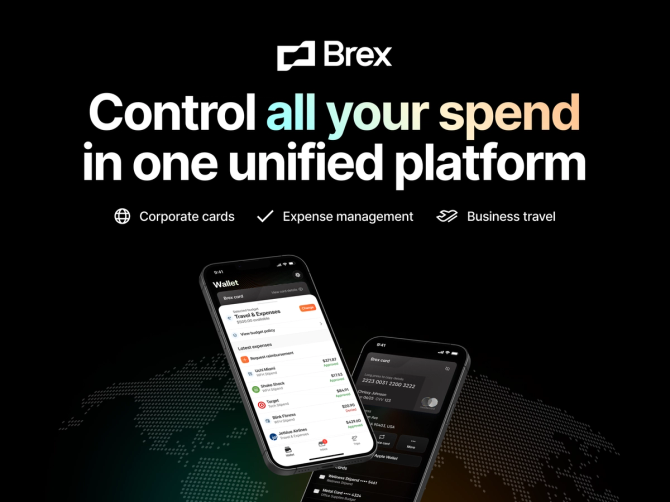Hello, and welcome to Wednesday. Ryan Seacrest was just named the new Wheel of Fortune host, which means we now have to go back to the career-planning drawing board. TBH, we thought we had a real shot considering how many hours we invested in watching the Wheel. 
In this issue:
 Clear as a bell Clear as a bell
 New mandate New mandate
 Ransom note Ransom note
—Drew Adamek, Natasha Piñon, Courtney Vien, Eoin Higgins
|
|
Constantine Johnny/Getty Images
Pay transparency laws, or laws that require employers to list salary ranges in job postings, are gaining momentum across the country.
To date, eight states have already enacted pay transparency laws, while another 16 and Washington, DC, considered pay transparency during the 2023 state legislative session, according to the National Women’s Law Center.
But not everyone’s on board. “A lot of companies are really afraid of pay transparency for two reasons,” Lulu Seikaly, senior corporate employment attorney at compensation software company Payscale, told CFO Brew. “One, because it takes a lot of work, monetarily [and] manpower-wise, to get it right. Two, they’re afraid of showing their cards to the world of how much they pay.”
With pay transparency policies on the rise, more finance teams will have to consider demystifying their compensation practices—either to comply with legislation or simply to keep a competitive edge. To that end, it’s helpful to turn to companies, like Buffer, that have been on the forefront of the pay transparency movement for best practices.
Continue reading.—NP
|
|
TOGETHER WITH APOLLO GLOBAL MANAGEMENT
|
We all want our golden years to be…well, golden. That’s why it’s never too early to start thinking about retirement. Fortunately, that’s where Apollo can help.
Apollo is on a mission to help people retire better by investing in tomorrow today.
They offer a wide variety of products that provide an alternative to the traditional public markets. Whether providing guaranteed income products through their retirement services business Athene or tailored portfolio and asset management services to external retirement plans, Apollo and Athene’s offerings can help you sail into retirement with some security.
Expand your opportunities with Apollo.
|
|
Fatmawati Lauda/Getty Images
On Monday, the International Sustainability Standards Board (ISSB) of the International Financial Reporting Standards Foundation (IFRS) released two new sustainability disclosure standards, IFRS S1 and IFRS S2, which will go into effect for annual reporting periods starting on or after January 1, 2024.
The standards require public companies to report on sustainability-related risks and opportunities that could “reasonably be expected” to affect their “prospects,” which the IFRS defines as their cash flow, access to finance, and cost of capital.
The new standards are intended to serve as a “global baseline” for sustainability disclosures and improve investors’ confidence around sustainability, the IFRS said in a press release. They “have been designed to help companies tell their sustainability story in a robust, comparable, and verifiable manner,” ISSB Chair Emmanuel Faber said in a press release. “We have consulted closely with the market to ensure the Standards are proportionate and will result in disclosures that are relevant for investment decision-making.”
Keep reading.—CV
|
|
Just_super/Getty Images
A nearly 25% monthly drop in ransomware attacks is the good kind of news—unless it’s still leaving you with a number of exploits.
That’s what NCC Group, an information assurance firm based in the UK, found in its latest monthly Cyber Threat Intelligence Report. Ransomware attacks dropped to 352 in April from March’s 459, but April’s number still dwarfs the highest rate in 2022 by more than 50. NCC’s report put the attack level in perspective, noting that “the main contributor to March’s numbers was the prolific exploitation of the GoAnywhere MFT vulnerability” and that patches and fixes drove some of that number down.
“Looking at the first four months of 2023, it is clear that ransomware numbers are trending much higher than in 2022,” the report continued. “Although the results this month have declined, the number of victims is the second highest ever recorded in our database (beginning 2021).”
The threat landscape by the numbers:
- In April, 58% of ransomware attacks were carried out by three groups: 107 by Lockbit 3.0, 50 by BlackCat, and 46 by BianLian.
- The three most targeted sectors were industrials at 32% and consumer cyclicals and technology, both at 11%.
- North America accounted for 50% of attacks, with Europe coming in second at 24%, and Asia at 10%; 8% were in undisclosed regions.
Keep reading on IT Brew.—EH
|
|
|
Bring your spend into focus. Juggling multiple systems and platforms to help your team manage cards, travel, reimbursements, and bill pay? Check out Brex, the global platform that helps you automate compliance, close the books faster, and control your spend all in one place. There’s a better way—try it today.
|
|
MB
Today’s top finance reads.
Stat: $18.5 million. That’s the fine Publisher’s Clearing House has to pay for deceptive and coercive tactics known as “dark patterns” that trick consumers into paying for things they don’t want. The FTC sued Amazon last week for the same practices. (the New York Times)
Quote: “The bankruptcy of Lordstown signals that the days of successful EV startups [are] in the rear-view mirror. Moving forward it will be Tesla and the traditional incumbents...that will duke it out for market share.”—Thomas Hayes, chairman at hedge fund Great Hill Capital, on Lordstown Motors, the EV manufacturer that filed for bankruptcy on Tuesday. (Reuters)
Read: The cost of your Fourth of July cookout is less than it was last year. BTW, we still haven’t received our invite to your barbecue sooo…this is awkward.  (CNN Business) (CNN Business)
Blame the data: Not the user. Payment failures aren’t just a cost of doing business. The real reason behind payment failures is primarily the data. Dig into what you can do to fix it here.*
*This is sponsored advertising content.
|
|
|








